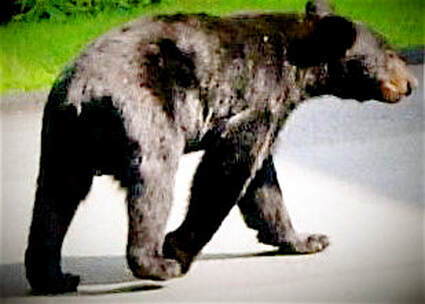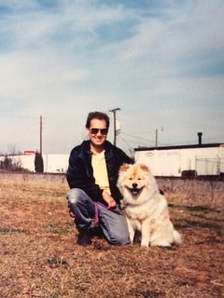|
With "Aslan," on a training day in Charlotte, early 1990's
In an earlier reflection, I mentioned that dogs changed my life. I landed a job training dogs during a difficult transition. The relationships that were formed, the bonds created, the love of a human for another species—these were the things of dreams. Our own companions have seen me through a lot. The dogs that Penny and I have shared space with over the years have listened to my complaints, my plans, my sermons, my articles, my stories, and my fears. They helped me cope with intense clinical training, seminary papers and exams, the deaths of my parents, and job loss. They supported me through two heart attacks, a lung tumor and its surgery, the deaths of patients and friends, multiple relocations, and a host of other stress-inducing elements of life that are common to us all. When I first began training dogs, it was a hobby. Later, it turned into a vocation. As time passed, I realized that these creatures communicated with me in ways that defy adequate explanation. It is a spiritual connection; a sacred partnership based on trust. I was called to companion with these beings at just the right time, for just the right reasons. They believed in me, and I in them. Yes, even the protection dogs that were trained to “hit” my arm in its protective sleeve were often discriminating enough to still be my buddy. As the emotional and spiritual bond deepened, I began to share my experiences with others who understood exactly what I was saying. By the time I reached my final year in seminary, I was prepared to express this in a formal way, which I did in my master’s thesis/project, a research-based effort based on exploring the human-animal bond. How and with whom we commune says a lot about us. I’m proud to contemplate with my four-legged relatives. Mahatma Gandhi is credited with having said, “The greatness of a nation and its moral progress can be judged by the way its animals are treated.” In an upcoming book, Called Yet Again, I discuss the aspects of my kinship with the canine through the lens of Scripture, tradition, reason, and experience. Within the context of reason and experience, I propose that the domestic dog is a participating member of the family system, and that the dog is capable of enough reason to define itself to others by virtue of its own emotional intelligence. In addition, the “Gih’li,” as the dog is known in Cherokee life and thought, has never once lied to me or tried to manipulate me into believing that I’m less than I am. The animals, especially the dogs, have given me far more than I’ve given them. They are more like us than different, and communing with them has been one of the great privileges of my life. Are you called to companion with nature in some way? I would love to hear about it.
1 Comment
|
Yona Ambles"YOH-nuh" (yonv) means "bear" in Cherokee. Thanks for visiting! Archives
January 2024
|


 RSS Feed
RSS Feed
